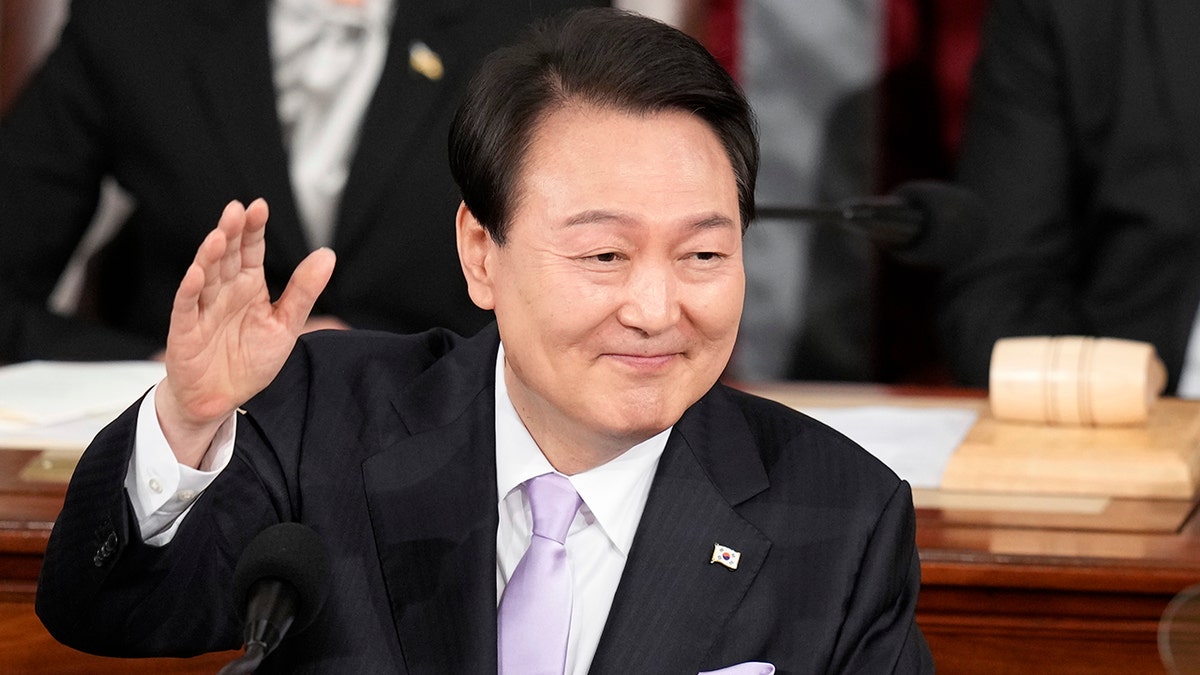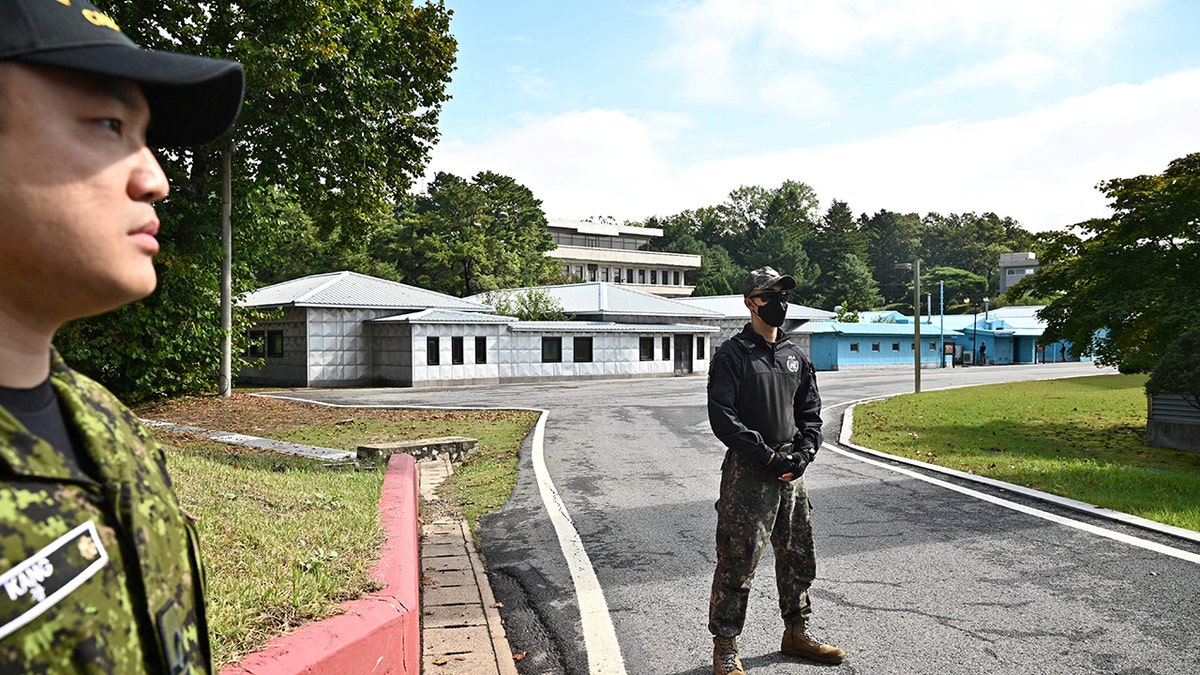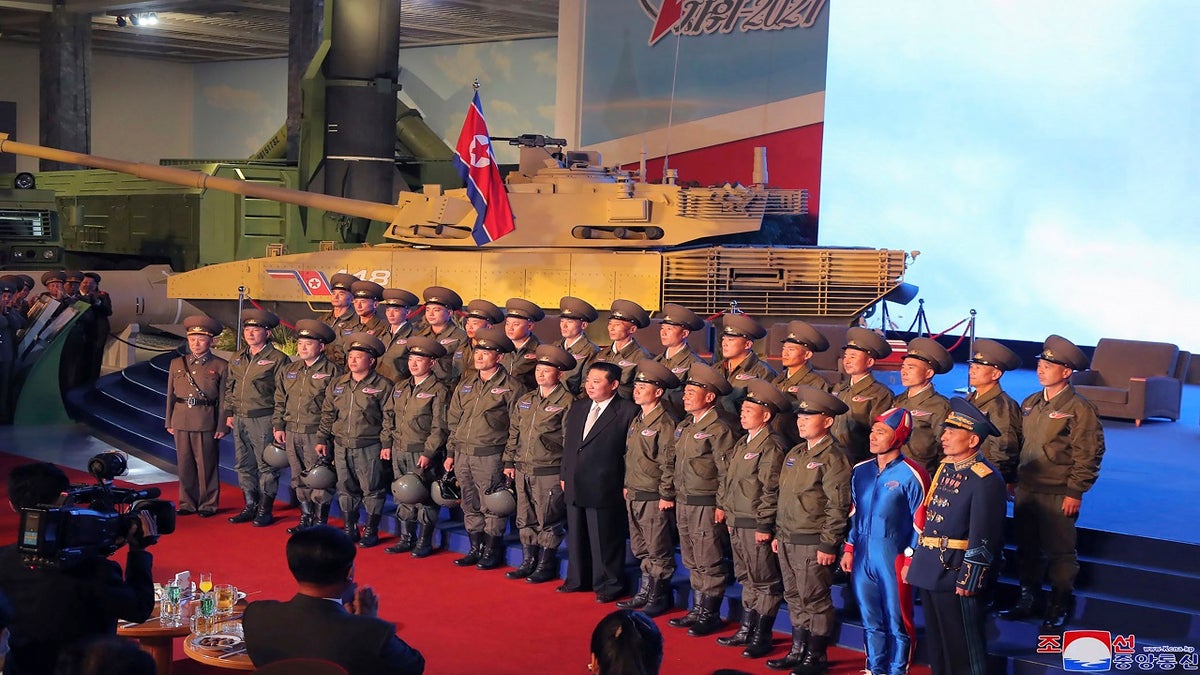South Korea is signaling a significant change in its approach towards North Korea, moving away from its previous stance of providing broad support. President Yoon Suk Yeol announced this policy shift after appointing a conservative leader to the Unification Ministry, the governmental body responsible for inter-Korean relations.
President Yoon emphasized that the ministry should no longer function as a "support department" for North Korea, marking a departure from past practices. He stressed the need for the ministry to focus on its core responsibilities and uphold constitutional principles, ensuring that any future unification is grounded in a liberal democratic framework.

South Korea's President Yoon Suk Yeol addresses a joint meeting of Congress in Washington. (AP Photo/Alex Brandon)
Historically, the Unification Ministry's role has been to maintain communication with North Korea since the Korean War divided the peninsula. Its approach has fluctuated depending on the evolving dynamics between the two nations.

Soldiers from the United Nations Command and South Korea stand guard near the Demilitarized Zone (DMZ). (Anthony Wallace/AFP via Getty Image)
Current inter-Korean relations are strained, influenced by increased joint military exercises between the U.S. and South Korea, alongside North Korea's ongoing weapons testing. North Korea has also adopted a more hostile stance towards the United States, aligning itself with Russia and China.
President Yoon's vision for unification prioritizes improved living conditions and human rights for all Koreans, both North and South. This new direction suggests a more assertive approach from South Korea in its dealings with North Korea, emphasizing a commitment to democratic values.

North Korean leader Kim Jong Un with fighter pilots at a weapons exhibition in Pyongyang. (AP)
Comments(0)
Top Comments